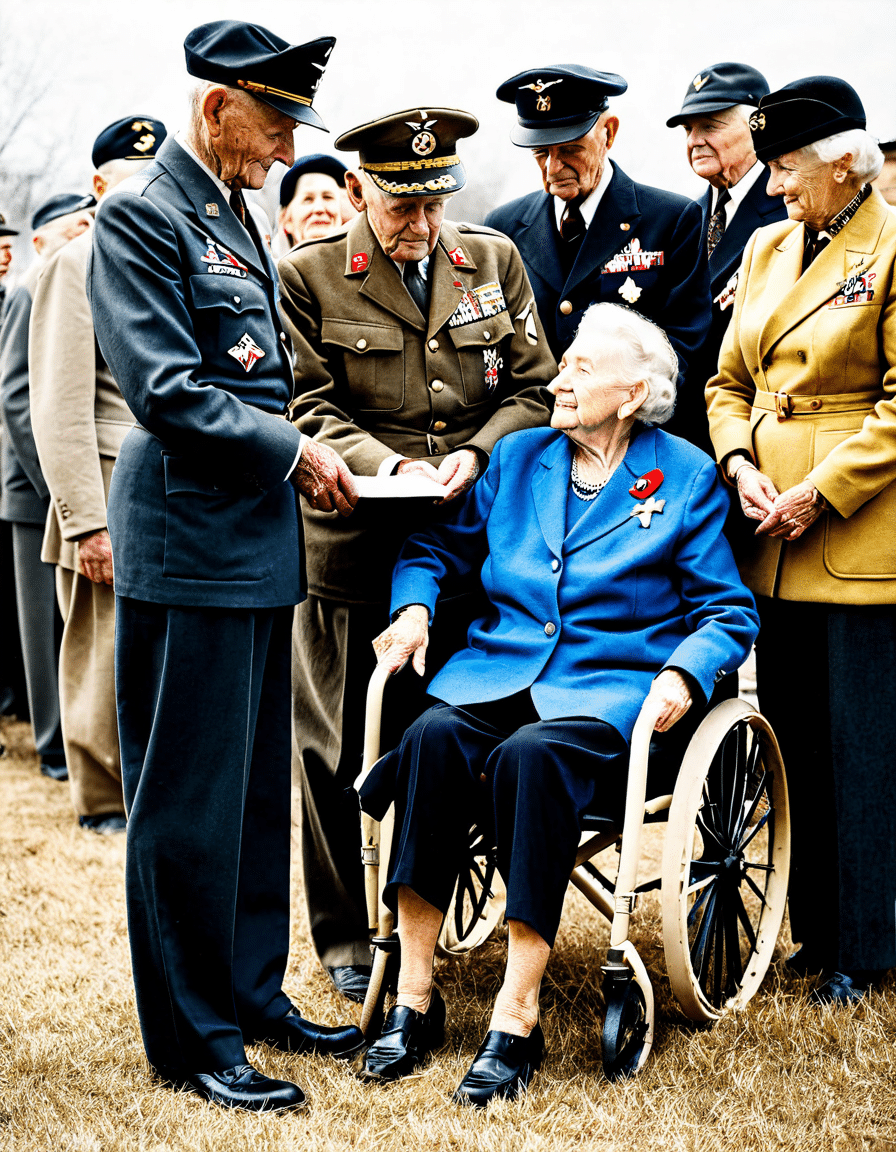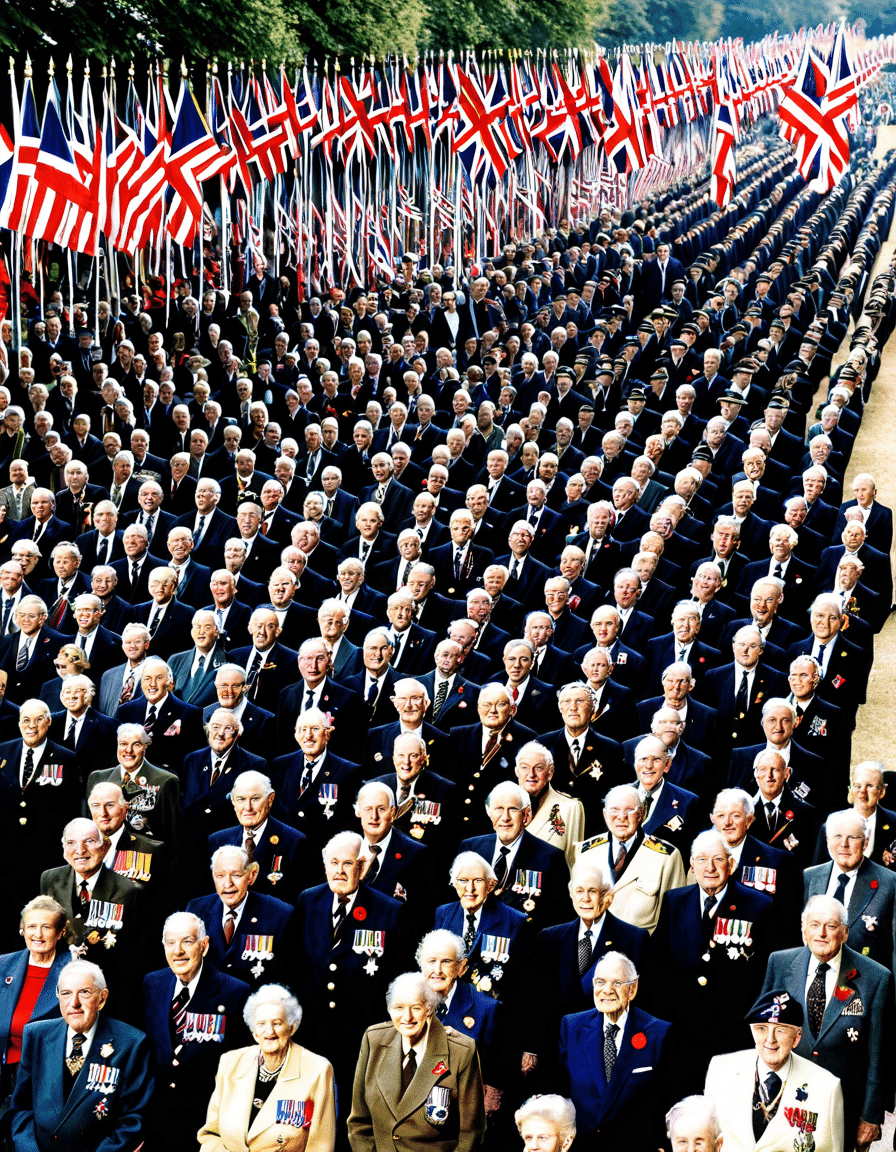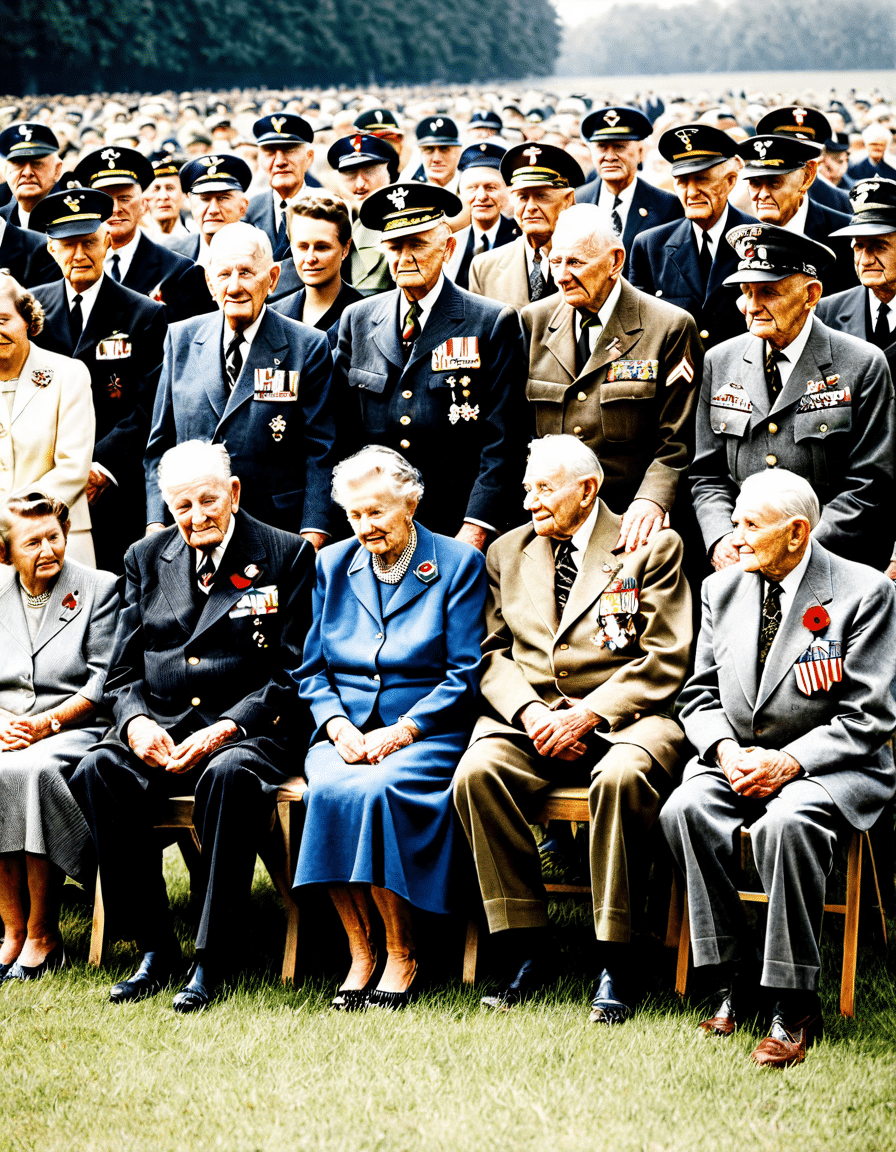As of 2023, an estimated 240,000 World War II veterans still walk among us in the United States. It’s a sobering figure that highlights how rapidly their numbers have dwindled over the past two decades. This article will delve into not just how many WWII veterans are still alive but also their demographic landscape, the role of organizations in supporting these aging heroes, and why acknowledging their existence is vital to our society today.

The Current Status of WW2 Veterans: A Demographic Snapshot
The WWII veterans we have left represent a generation that faced unimaginable challenges, sacrificing their youth in defense of liberty. They are now mostly in their late 90s, born in the roaring 1920s when life was filled with optimism before the storm of war dramatically changed their futures.
Age Distribution of Veterans
The average age of a World War II veteran hovers around 97 years old, which paints a vivid picture of how these men and women have lived long and eventful lives. With age comes both wisdom and the unfortunate reality of mortality. Many who experienced turning points in history, such as the D-Day landings at Normandy or the fierce battles in the Pacific, are becoming increasingly rare. The voices of those who can share potent first-hand accounts are rapidly decreasing, making it all the more essential to cherish and record their stories while we still can.
Geographic Breakdown: What States Have the Most WWII Veterans?
A state-wise look at the remaining WWII veterans reveals interesting patterns. States like California and Florida boast the highest concentrations of living veterans, primarily due to their warmer climates and thriving retirement communities. Other states like Minnesota and Michigan, with rich histories in wartime production, also house significant populations of these heroic individuals.
Here’s a brief breakdown of some states with notable veteran populations:

The Role of Organizations in Supporting WWII Veterans
Organizations such as the American Legion and Veterans of Foreign Wars (VFW) play pivotal roles in offering various forms of support to WWII veterans. They provide health services, access to counseling, and social gatherings—essential lifelines as these brave individuals cope with the myriad challenges that come with aging.
These organizations create platforms for personal connections among veterans, encouraging them to share experiences and rebuild bonds that time may have frayed. Many local chapters hold events throughout the year, helping to foster a sense of community and solidarity.
Why Understanding the Number of WW2 Veterans Still Alive Matters: A Societal Perspective
Why should we care about how many WW2 veterans are still alive? Well, understanding their plight highlights our moral obligation to support those who sacrificed so much. Many veterans lean on government programs for healthcare and services, making awareness of their needs crucial for ongoing support.
How Do Modern Issues Relate?
Interestingly, the last generation of WWII veterans exists alongside modern dilemmas, such as the complexities surrounding issues like “can a felon get a passport?” and “is Trump a felon?” These themes echo the challenges veterans face even in civilian life, where legal and societal hurdles persist long after their military service has ended.
Real-Time Implications and Historical Reflections
The experiences of WWII veterans resonate deeply in today’s discussions on rights and citizenship. Their fight for justice and equity informs current debates about marginalized communities, demonstrating that the quest for dignity is ever-present, regardless of one’s past.
Progress of the WWII Veterans: Stories of Resilience
Remarkably, the stories of these veterans often don’t end upon leaving the battlefield. Across the nation, many veterans, such as 98-year-old John O’Neill, who bravely fought at the Battle of the Bulge, are actively sharing their stories. Through memoirs and public speaking engagements, they continue to inspire younger generations to appreciate the freedoms won through their sacrifices.
Further, the resilience of these veterans showcases the human spirit’s strength and the lasting impact of their service. Their narratives form a bridge between history and the present, ensuring that their legacies endure.
Innovative Ways to Commemorate Our Veterans
As the population of World War II veterans dwindles, imaginative commemorative projects are emerging. Initiatives such as virtual reality experiences and interactive exhibitions at museums help new generations engage with the past actively. These avenues act as windows into the human experiences of war, allowing younger audiences to grasp the real costs of conflict.
The importance of these storytelling methods cannot be overstated. They keep the memory of these veterans alive and spark discussions about their contributions, ensuring that history is not lost but celebrated.
Final Thoughts: The Future of WWII Veteran Recognition
On reflecting about how many World War II veterans are still alive, we are reminded of our collective responsibility to support them. With their numbers dwindling, it’s critical for communities to prioritize services and education initiatives that honor their contributions while addressing their needs.
The urgency of recognizing our remaining veterans emphasizes the importance of preserving our history. Supporting World War II veterans today isn’t just about morality; it’s a shared commitment to ensuring their sacrifices are never forgotten. Acting now solidifies our role as stewards of this sacred legacy.
In closing, let us remember that as we carry forward the battle for justice and equality, we must also look back in gratitude to those who have fought before us. Their sacrifices and stories not only enrich our heritage but also galvanize us to work toward a brighter future for all.
How Many WW2 Veterans Are Still Alive?
As of 2023, estimates suggest that there are fewer than 200,000 World War II veterans still living in the United States, with their ranks dwindling each year. This number corresponds to heart-wrenching losses, as thousands pass away monthly—an undeniable reminder of their sacrifices. Interestingly, many WWII veterans are now sharing their stories through various platforms, shedding light on what it was like to be part of this epic chapter in history. For those intrigued by the past, the tale of these brave individuals is indeed captivating, much like the vibrant tunes of the Heardle 60s, reminding us of a different era.
Stories Worth Telling
Each veteran has a unique story, often filled with brave deeds and valuable lessons. For instance, you might come across tales of camaraderie, resilience, and grit—qualities that shaped not only the veterans but also the future generations. In an age where people discuss everything from the latest new Redbull flavor to the recent events surrounding the Chinese basketball association, reminiscing about the WWII era provides a fresh perspective on the values of discipline and teamwork. It’s these stories that continue to inspire, showing us the importance of remembering history, for it’s a treasure trove of insights. Just like those thrilling Backstreet Boys names might invoke nostalgia in some, the exploits of WWII veterans have a way of sparking conversations across generations.
Looking Back, Moving Forward
Remember, these veterans aren’t just part of history books; they are living reminders of our shared past. However, capturing their experiences is crucial before they become distant memories. Initiatives encouraging veteran storytelling empower them to pass on their wisdom, which can guide the young towards better understanding and appreciating freedom. Moreover, structures like Primerica life insurance offer options to support veterans, ensuring they are cared for in their golden years. As you ponder how many WWII veterans are still alive, take a moment to reflect not only on their dwindling numbers but also on the wealth of knowledge and bravery they continue to offer. After all, the stories we tell today shape the understanding of tomorrow.




